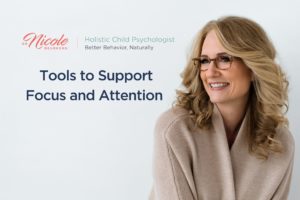The decision to treat a child’s mental health condition with medication is complicated, often agonizing one for parents. Your child is ill, hurting and struggling. As parents, we want only to relieve our children from suffering, to help them live peacefully so they can grow and thrive. So more often than not, the question is asked, should I give my child or teenager antidepressants?
Antidepressant medications are often prescribed for children and teenagers with a range of mental and behavioral health issues. In addition to depression and anxiety, antidepressant medications are also prescribed for children with obsessive-compulsive disorder (OCD) and with post-traumatic stress disorder (PTSD). Young people with ADHD and autism are given antidepressant medications for hyperactivity, aggression, repetitive behaviors, as well as anxiety and depression.
Antidepressants are often considered the first and best option for treating depression and other psychological issues in children and teens. Studies show rates of antidepressant prescriptions for young people have been on the rise for decades. A recent report from the U.S. Centers for Disease Control estimates that nearly 13 percent of American teenagers are taking antidepressant medications. According to this study and others, girls are prescribed antidepressant medications more often than boys.
Are antidepressant medications the right therapeutic choice for your child?
The most important step parents can take in making this decision is to be fully informed. That means understanding the effects that science tells us these medications can have on children. Being fully informed also means becoming familiar with the range of treatment options available to children and teenagers with depression and other conditions. With this information, parents have an easier time weighing all the options.
That’s a tall task! I hope this discussion can help. Let’s spend some time reviewing what we know about the impact of antidepressants on our kids.
In making a decision whether to put your child on antidepressant drugs, it’s essential to ask questions. The parents I see in my clinic typically have a lot of questions about antidepressant medications for children.
There are three questions I think are absolutely essential.
Are antidepressant medications effective in treating child and adolescent depression?
I work with parents who come from a wide range of perspectives. Some parents feel comfortable and relieved at the idea of using medication for their child’s depression or anxiety treatment. Other parents are deeply reluctant about the option. What every parent shares? A desire to find an effective therapy for their child’s psychological issues. Parents also have a strong desire to avoid exposing their children to medications that don’t work. Read on for how this question is answered with recent research.
Are antidepressant medications safe for children and teens?
As parents, we need to understand all the risks associated with antidepressant use in children. That’s how we’ll make a fully informed decision.
What other therapies exist?
It’s important for parents to be familiar with all the therapeutic options. Parents understandably want to identify the right therapy for their child. There isn’t a one-size-fits-all answer to treating depression, anxiety or other emotional and behavioral problems in kids and teens.
Antidepressants for kids: tough to sort out the ‘facts’
Getting all the information about the effects of antidepressant medications in children and teenagers isn’t easy. One of the trickiest issues? A lack of transparency and clarity about scientific research on the topic.
To understand the benefits and risks of antidepressant medications, it’s helpful to know a quick bit of history. In the 1980s and 1990s, a number of studies showed antidepressant medications were effective in improving depression. These studies also suggested these medications came with very few side effects. That strongly suggesting their benefits outweighed their risks.
In the wake of these studies, the use of antidepressant medications in children and teenagers began quickly to rise.
In recent years, much of this earlier research on antidepressant medication has been called into question. Many scientists have raised issues with the methods and the results.
One of the major issues raised? The funding sources for research into antidepressants. The pharmaceutical industry has provided funding for a large number of studies that have concluded antidepressant medications are safe and effective for young people. When companies have a financial stake in the drugs undergoing research, studies tend to be more positive. They overestimate the benefits of drugs and under-estimate the risks. That’s what’s known as systemic bias. And there’s scientific evidence of systemic bias in industry-supported research of antidepressant medications.
Other issues about antidepressant medication research have been raised, including:
Problems with study methods. Scientists have raised questions about the methods employed in many earlier studies of antidepressant medications. Faulty methods could make the drugs appear more effective and less risky than they actually are.
Exaggerated placebo effects. Some studies of antidepressant use have seen large placebo effects alter the results in ways that may exaggerate the drugs’ effectiveness. How does this happen? One way is when participants in a “blind” study come to think they know which version of the drug they’re taking. (In blind studies, volunteers are not supposed to know whether they’ve been given the drug or a placebo.)
This is known as “unblinding” of a research study, and it can lead to skewed results. How? People who think they’re taking the drug may experience a hope-related boost to their progress that’s not a direct result of the medication. On the other hand, people who think they’re taking the placebo might feel disappointed or discouraged. That might make their condition worse.
Selective reporting of results. Scientists point to a practice of “selective reporting” in antidepressant studies. This involves publishing only partial data and results, rather than sharing all data and results collected in a study. Selective reporting can mean the public only sees positive results, while negative information is withheld.
Scientists are now re-analyzing full data from earlier research studies on antidepressants. New research has found the benefits for children and teens of medications such as Paxil have been overstated. At the same time, their risks have been minimized.
We need to take into account the re-evaluation of these drugs that’s underway. That’s the only way to be well informed about their risks as well as possible benefits.
Let’s take a look at how the latest scientific research answers those three essential questions I asked a moment ago.
Are antidepressants effective for kids and teens?
Many studies show a small, statistically significant benefit from antidepressant medications for some mental health disorders. SSRI and SNRI medications are two of the most commonly prescribed types of antidepressant drugs in children. A 2017 research analysis of SSRI and SNRI medications found these drugs may work best for child anxiety treatment. Other conditions such as obsessive-compulsive disorder do not respond to antidepressant medications, according to this research.
The benefits that are found in scientific studies may be so small that patients don’t actually feel them. A research study may identify a statistical benefit—a number on a piece of paper. But it may be so modest that it doesn’t translate into an actual, meaningful improvement of symptoms.
Recent studies show there is little difference between the effectiveness of SSRI medications and placebo drugs in reducing symptoms of depression in children and teenagers. Most of the improvements experienced by patients taking the medications—as much as 70-87 percent—is also experienced by patients taking a placebo.
And what about the effectiveness of antidepressant medications over the long-term? We know that among children with depression relapse is common. Somewhere between 40-70 percent of children experience a relapse of symptoms within 5 years. More than half experience a relapse during adulthood. There’s a lack of long-term effectiveness of antidepressant medications, in children. But studies in adults show that SSRI antidepressant medications used over the long-term may increase the risk of relapse.
Why might this happen? One theory says that because SSRI elevates serotonin levels in the brain, over time the brain may respond by reducing its serotonin production. Lower serotonin production might leave people who use these drugs for long periods of time more vulnerable to depression, particularly after they stop using SSRI medication.
Are antidepressant medications safe for children and teens?
A greater vulnerability to depression relapse is one safety risk. What does the latest science have to say about other potential safety risks?
Earlier studies of antidepressant medications suggested they were largely safe for children and teenagers. More recent research has shown the risks in previous antidepressant studies were underestimated. We’re learning there are a number of serious side effects and risks to consider when evaluating whether to use antidepressant medication for your child’s condition.
Studies show the side effects of antidepressant medications include:
- Nausea, vomiting, and other gastrointestinal issues
- Headaches and migraine
- Sleep problems, ranging from insomnia to excessive sleepiness, as well as pronounced fatigue and drowsiness
- Lack of energy
- Cardiovascular issues, including irregular heartbeat, accelerated heart rate, and changes to blood pressure
- Dizziness and feeling faint
- Changes to appetite, including increased and decreased hunger, and a potentially increased risk for anorexia
- Aggravated depression
- Increased anxiousness
Another safety consideration for parents to consider is the long-term effects of antidepressant drug use. Once started, these medications can become difficult to stop taking. Research shows that an estimated 80 percent of antidepressant users (children and adults) have been taking these medications for more than a year.
Overall, there’s a worrisome lack of research about the long-term impact of antidepressants in children. We know that long-term exposure to antidepressant medications is associated with increased risks for weight gain. That puts them at higher risk for type 2 diabetes and other chronic conditions. There’s also evidence indicating long-term antidepressant use may increase our vulnerability to substance use disorders such as alcoholism. In women of childbearing age, use of SSRI drugs has been linked to miscarriage, birth defects, and development of autism in children.
Risk of suicide is the most serious of the potential risks associated with antidepressant medications. Over the years, there’s been a great deal of conflicting and confusing information about the link between suicide and these drugs. Many studies report an increase in suicidal thoughts, behaviors, and suicide attempts in children and teenagers who use antidepressant medications. A review of clinical trials studying antidepressants found sharply increased risks for suicidal thoughts and behaviors in young people under the age of 25.
Can kids get worse on psych meds? In previous video blog posts, I go deeper on the subject of side effects and what you need to know about withdrawal.
What are the alternatives to antidepressant medications for children’s mental health issues?
When a child is showing signs of depression, anxiety, or another mental health issue, medication may quickly become the first option on the table. There are many other options for depression and anxiety interventions for children. Parents should know: even in cases where antidepressant medication is beneficial, these medications can’t address the root causes of depression or anxiety disorder in kids.
Mental and behavioral issues in children are complex. They often arise from several factors. The most effective therapeutic plans tend to combine treatments. That can include natural solutions for anxiety, depression and other conditions. When you’re considering how to address your child’s emotional and behavioral issues, keep all of these avenues in mind:
Cognitive and behavioral therapies. Studies have shown that different forms of non-drug therapy are effective in improving depression and other mental health issues in children and teenagers. Both cognitive-behavioral therapy (CBT) and Interpersonal Therapy for Adolescents (ITA) can be effective in helping young people address mental, emotional, and behavioral struggles and trauma.
While there is no clear evidence that confirms combining behavioral therapy with antidepressants leads to better outcomes for children with anxiety or depression. Studies do show us that secure, nurturing therapeutic relationships are highly beneficial for children in improving their mental and behavioral health.
Healthy daily habits and routines. Plenty of exercise and physical activity. Abundant, consistent sleep routines. Meaningful time engaged in supportive relationships with peers and family. Time outdoors, and limited time with electronic devices. These are the daily foundations that help support a child who is coping with emotional or behavioral problems. Daily investments in physical activity and movement, in sleep, in social connections, and in growth-producing activities that don’t involve digital devices can make a difference in children’s mood and behavior.
Screening for other health conditions. It’s important to evaluate a child’s risk for other physical health conditions before opting to treat their symptoms with antidepressant medication. Conditions to look for include:
- Sensory, visual, and auditory processing issues
- Thyroid disorders
- Abnormal blood sugar
- Allergies (including skin and respiratory)
- Food sensitivities
- Head injury
A gut-and-mood friendly diet. We know there’s a powerful relationship between the gut and the brain. This gut-brain connection affects mood, emotion, behavior, and development in children. A diet that relies on processed foods, dyes, artificial sugars, and other chemical additives can trigger and exacerbate depression, anxiety, and other emotional and behavioral problems. Eliminating these dietary ingredients can have a positive effect on your child’s mood and behavior.
By exploring these options, parents and clinicians can identify the root causes of a child’s emotional and behavioral health issues. That may help avoid altogether the need for antidepressant medication. As research increasingly tells us, the benefits of these medications are highly limited, and the risks they pose are considerable.
What You Should Do Next:
Sign up for my Better Behavior Naturally community newsletter
Sign up for my newsletter to get tips, resources, and supports to improve your child’s attention, anxiety, mood, and behavior…while making your job as a parent easier.
Enroll in one of my workshops
Check out one of my many workshops where you’ll join my exclusive community of parents in a one-of-a-kind virtual resource accessible 24/7. Whether you’ve got a child with a diagnosis like autism or ADHD, or are becoming more and more frustrated with a child who struggles to listen and cope, these workshops are designed to give you the information, tools, and support you need…whenever you need it.








